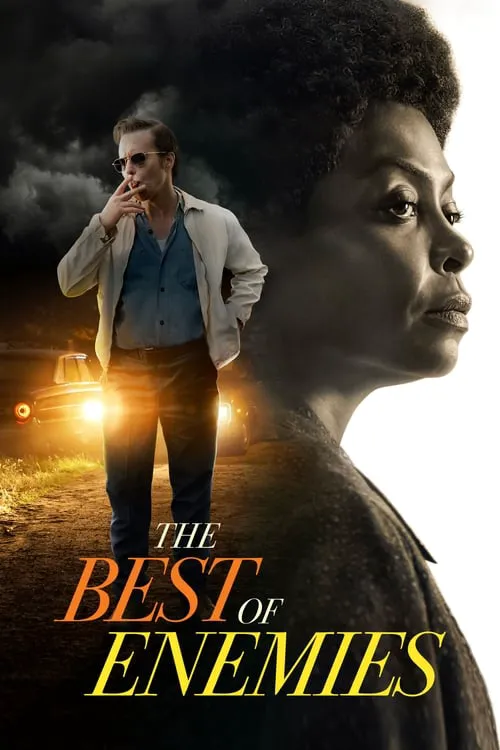The Best of Enemies

Handlung
The Best of Enemies is a 2019 drama film directed by Robin Bissell and written by Ossie Davis's son, William Gray Davis and Bissell. The film is based on the true story of Ann Atwater and C.P. Ellis, which was previously chronicled in the 1993 memoir 'The Best of Enemies: Race and Redemption in the New South' by Ossie Davis's friend, and former Ku Klux Klan leader, C.P. Ellis, who, under the urging of Ossie Davis, changed his ways and became a strong ally to those who had been oppressed by the K.K.K. The film serves as a testament to the transformative power of dialogue, human connection, and the unwavering pursuit of justice. In the sweltering summer of 1971, Durham, North Carolina was on the brink of chaos. Deep-seated racial tensions had been simmering for years, and the city's school system was a powder keg, ready to explode. Ann Atwater, played by Taraji P. Henson, is the unflinching leader of the local African American community. She is a passionate advocate for equality, and her unwavering commitment to justice has earned her both admirers and enemies. Atwater's fierce determination has also made her a polarizing figure, with some viewing her as a radical activist, and others seeing her as a threat to the established order. On the other side of the racial divide is C.P. Ellis, played by Sam Rockwell. A former plumber and a lifelong, dedicated member of the Ku Klux Klan, Ellis has built a reputation as one of the most feared and respected white supremacists in Durham. However, beneath the façade of the Klansman, Ellis is a complex and troubled individual, struggling to come to terms with his place in the world. The film's central plot revolves around the unlikely co-chairing of a community summit, where Atwater and Ellis are forced to put aside their animosity and work together to find common ground. The summit was spearheaded by Ann Atwater, who had successfully lobbied the local government to establish the gathering, where the desegregation of schools in the Durham area would be discussed. Ellis's participation in the summit was largely seen as a compromise, as it allowed him to maintain his standing within the K.K.K. community, while simultaneously attempting to placate the African American residents of Durham. Despite the tension, both Atwater and Ellis see something in each other they cannot explain. Ellis, a man known for being unflinching, is intrigued by the passionate advocacy of Atwater. For her part, Ann sees glimmers of humanity beneath Ellis's hardened exterior. Throughout the film, the animosity between Atwater and Ellis is palpable, and their verbal sparring matches often escalate into heated confrontations. However, amidst the chaos, there are moments of tentative connection, where Atwater and Ellis begin to grasp the complexities of each other's perspectives. Ellis starts to realize that the entrenched segregation in Durham is rooted in systemic failures, not just the inherent 'inferiority' of black people. Similarly, Atwater begins to understand the deep-seated fears and insecurities driving Ellis's actions. Their unlikely partnership at the summit forces both to confront the demons they have been trying to ignore. Ellis starts attending NAACP meetings and learning about the history of systemic racism in the United States. Atwater, too, finds herself engaging in candid talks with white residents, helping them to see the faces and stories behind segregation. The transformation that begins to take hold in Ellis has significant repercussions for both his personal life and his standing in the community. His association with Atwater and the NAACP puts him at the center of a fierce backlash from those who have long relied on him as a voice for their white supremacist agenda. In a pivotal moment of the film, Ellis makes a courageous speech in front of his fellow Ku Klux Klan members, revealing the depth of his transformation and distancing himself from the white supremacist ideology. It is a turning point for both Atwater and Ellis, signifying the beginning of a new chapter in their lives. The unlikely friendship that blossomed at the community summit has opened their eyes to the inherent worth and dignity in individuals from all walks of life. Ultimately, 'The Best of Enemies' is a film about redemption and the power of human connection. It highlights the possibility of genuine transformation, even in the face of entrenched division. By shining a light on the remarkable story of Ann Atwater and C.P. Ellis, the film not only illuminates the complexities of the American South during the Civil Rights era but also underscores the resilience and determination of individuals who dare to challenge the status quo.
Kritiken
Empfehlungen




